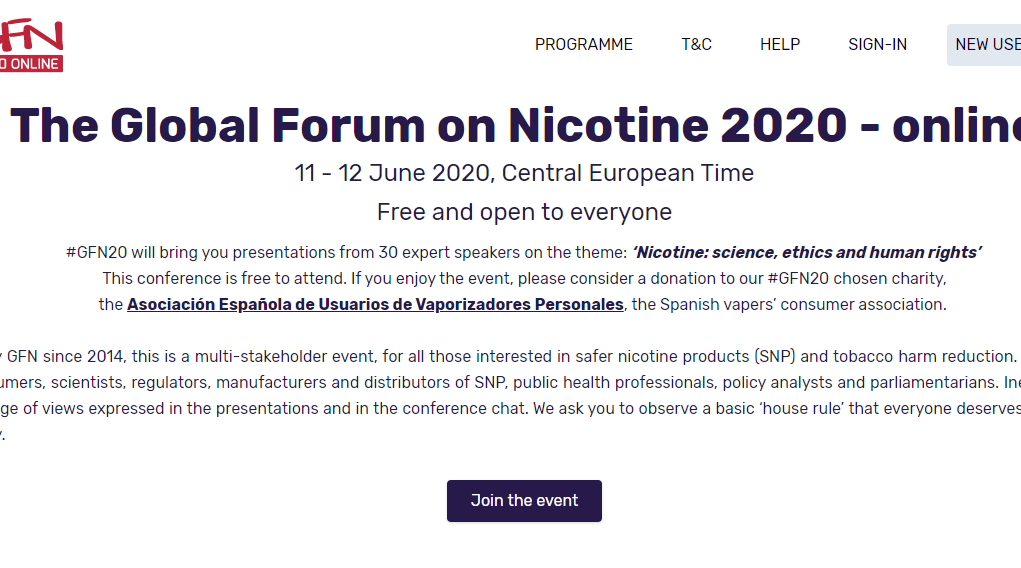This year’s theme is Nicotine: science, ethics and human rights, and it was on yesterday on the 11th of June and today Friday the 12th. Thirty experts are speaking on a diverse range of topics related to nicotine. These include the latest evidence on the interplay between nicotine, smoking and COVID-19; the negative impact of the deliberate and continued misinformation about the relationship between EVALI and vaping regulated nicotine e-cigs, instead of illicit THC and the moral panic about an alleged teen vaping epidemic taking precedence over the health of millions of adult smokers.
“Tobacco harm reduction is good public health. It starts with the people who matter – people who smoke, and people who have switched to a chosen alternative – and it fosters and encourages change. Tobacco harm reduction is not antithetical to tobacco control; it should be part of it,” said GFN conference director Professor Gerry Stimson, emeritus professor at Imperial College London and former honorary professor at the London School of Hygiene and Tropical Medicine.
“Currently, obstacles to widespread adoption of tobacco harm reduction include big US philanthropic foundations with a myopic view of tobacco control, creating divisions where none should exist, and international organisations wedded to a narrow view of what defines success. The global public health community must develop more ambition about what can be done – as well as a healthy dose of compassion for the individuals living with the consequences of inaction, of whom around seven million will die this year.”
Harm reduction strategies could change public health history
Renowned Professor David Sweanor, of the Centre for Health Law, Policy and Ethics at the University of Ottawa, and speaker at GFN, mentioned countries who have successfully adopted harm reduction strategies. “Consumers in many countries including Sweden, Norway, Iceland and now Japan have shown they move to alternatives to cigarettes when they get an option to. Imagine what would happen if people get access to a broad range of low-risk alternatives to cigarettes, if they get information on relative risk, and if they’re nudged toward those options through intelligent, risk-proportionate regulation? The opportunity we have is to fundamentally change the course of public health history, relegating cigarettes to history’s ashtray.”
Another successful GFN and ACS makes some movement, but bad news in Asia




![Recent Conference Urged Nations Worldwide to “Quit [Smoking] Like Sweden”](https://www.vapingpost.com/wp-content/uploads/2024/04/vape-conference-238x178.png)


![Recent Conference Urged Nations Worldwide to “Quit [Smoking] Like Sweden”](https://www.vapingpost.com/wp-content/uploads/2024/04/vape-conference-100x75.png)




